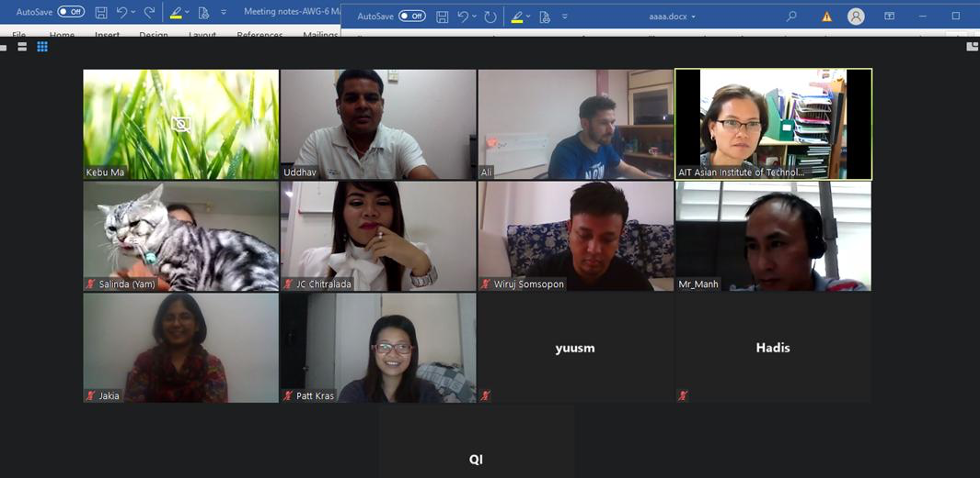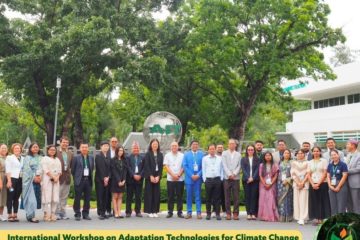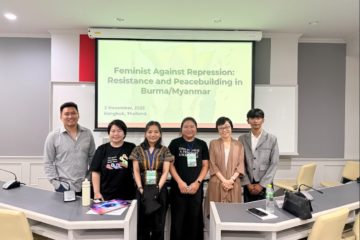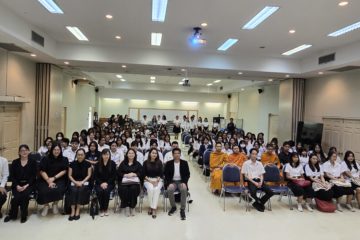PhD Colloquium: Process of Coordination and Negotiation between Villagers and Public Agencies over Natural Resource Management in China: Insights from Xishuangbanna Prefecture
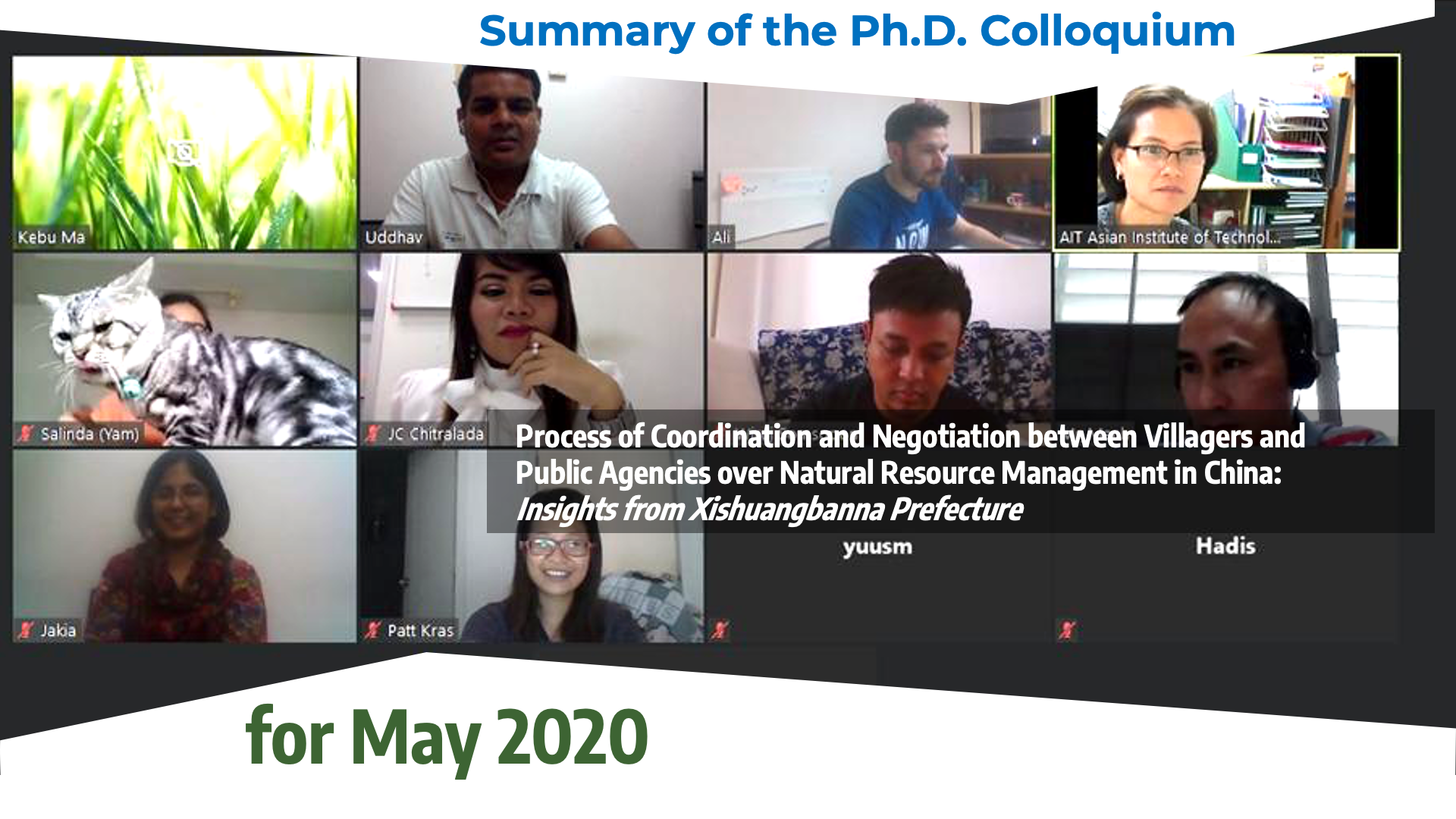
The Department of Development and Sustainability (DDS) organized a Ph.D. colloquium for Ph.D. students on 27 May 2020 as a monthly regular event of the Department. Before the presentation started, Mr. Uddhav Guragain, a Ph.D. candidate as a moderator shared that DDS had already conducted 20 sessions of Ph.D. Colloquium so far since it was started august 2017 as monthly basis. The main objectives of the colloquium to interact with the Ph.D. students under DDS to share their research, findings, experience, challenges, solutions.
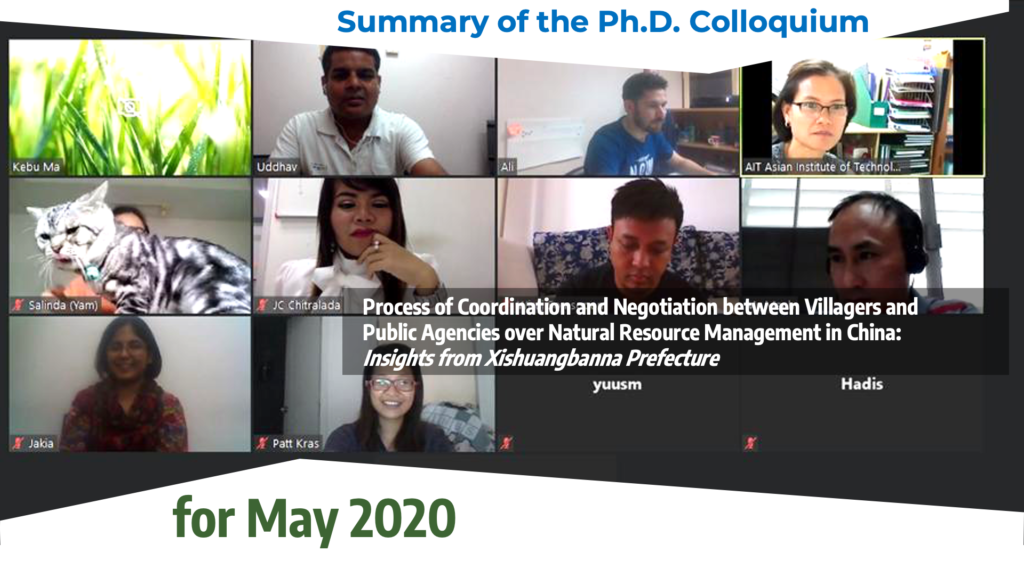
Presenter:
Mr. Kebu Ma, Ph.D. student/NRM
Moderator: Mr. Uddhav Guragain, Ph.D. student/GDS
Date:
Wednesday, May 27, 2020
Venue: Zoom
Time:
15:00 – 16:00 hrs
Due to the Pandemic situation of COVID 19, AIT is following the social distancing and conducting such sessions via online ZOOM. This session was also conducted through ZOOM online platform for presentation and interaction. Around 23 participants from different academic programs attended this colloquium. Mr. Kebu Ma, the presenter of the event, briefly explained the concept of his Ph.D. research on the topic “Process of Coordination and Negotiation between Villagers and Public Agencies over Natural Resource Management in China: Insights from Xishuangbanna Prefecture. The study was based on a field survey, conducted in 2 villages with a sample size of 100 households Gebiezhongzhai and Ake village of Yunnan Province of China. The researcher has applied the qualitative research approach using interviews and participant observations as the tools of data collection and the main data analysis method is content analysis. The research assessed the pathway of coordination and negotiation between government agencies and local villagers. The study has investigated the dynamic of actors’ confrontation (the original of peasant-state confrontation, eg, the interaction between policy intervention and livelihood access), the interface of confrontation (values/strategies/outcomes) and the factors that influence actors’ to exercise their “agency. The study was based on a field
The presentation was followed by an interactive discussion. The following questions were asked:
- What were the Research Questions as not clearly seen in the Presentation?
- How did you define the coordination and negotiations in research (qualitative or quantitative)?
- What were the data analysis tools?
- How did you determine the sample size?
- Why did you choose these particular two villages?
- You said you used content analysis.
How is your experience whether it is enough for writing papers?
The presenter responded to all questions and welcomed suggestions. The before wrapping up the session, the moderator provided the time for all participants to express their view to increasing the participation in Monthly Ph.D. colloquium. He gave the vote for thanks to the presenter, participants, Administrative and technical staff of DDS making the session fruitful.
